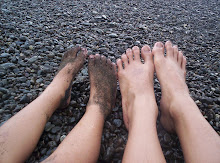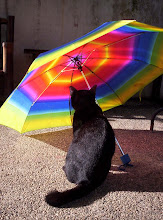
My friend Ann is 27 years old and is not yet ready to get married. She says it is daunting to raise children these days. I agree. Most girls don't realize what mothers go through until they become mothers themselves.
I am a working mother. I have often envied those mothers who stay home and take care of their kids, the ones who know exactly why little Lisa hates the color yellow and can recite the names of all Lisa's 25 friends in kinder class. I am with my kid exactly 2 1/2 hours per day. I get up in the morning and her yaya has already prepared her for school; I get home at night and she's fed, washed up, and ready for bed. By the time I finish dinner she's already sleepy. For the rest of us who work, it's always a choice between raising the child ourselves and helping provide for the needs of the family. When my daughter asks me why I need to work every day, I tell her it's so we will have enough money for her food, clothes, and home. She goes to the mall on weekends and has a Barbie doll collection because her parents have good jobs.
My daughter's friends tell me that I'm always glamorous and their mothers are not. My daughter says it's because I go to the office, and the other mothers don't look so good because they stay home and take care of the kids. Very early on the children get this sense that when both parents work, their parents look good and the children enjoy more luxuries. Stay-at-home parents are less dignified. But you ask my kid if she's happy that she only sees me in the evening. You ask her if a dozen Barbie dolls is enough companionship in the afternoons after school.
And it goes beyond providing for the children. Every day you're faced with the realization that everything you do is shaping her personality and character. And every day you're put to the test: your patience, your judgement, your sense of what's right for her, your stand on discipline. You cannot reason out that you cannot play because you're dog-tired at the end of the day, because then your seven-year-old would ask if your job is more important than her. And you cannot buy new shoes on impulse because a little voice is telling you that the price of the shoes is equivalent to a can of baby's milk.
When tempers run short and I feel like throwing the girls out of the window, I think about how lovely it must be to be single, earning my own money, and living as I wish. I daydream about condo living, weekends at the beach, and writing. But you know what? It's tough, but I will not exchange my daughters for a life like that. It's worth every dragging second of my office-girl-life, to come home in the evening and smell a well-fed sleeping baby in my bed.
Even if the baby wakes up screaming at 2 a.m. because she does not recognize you.





























